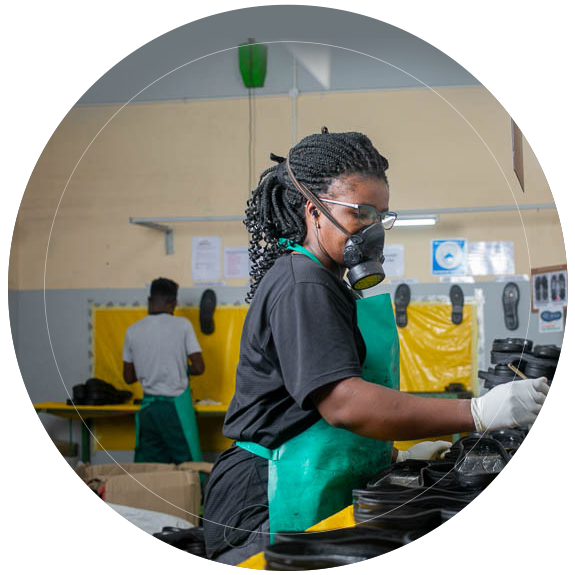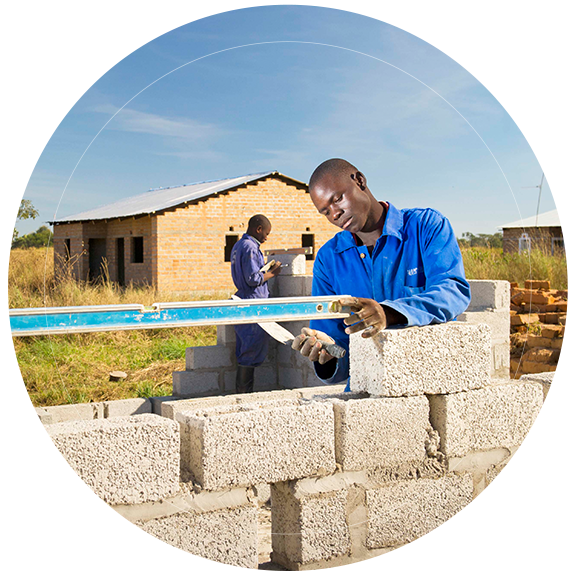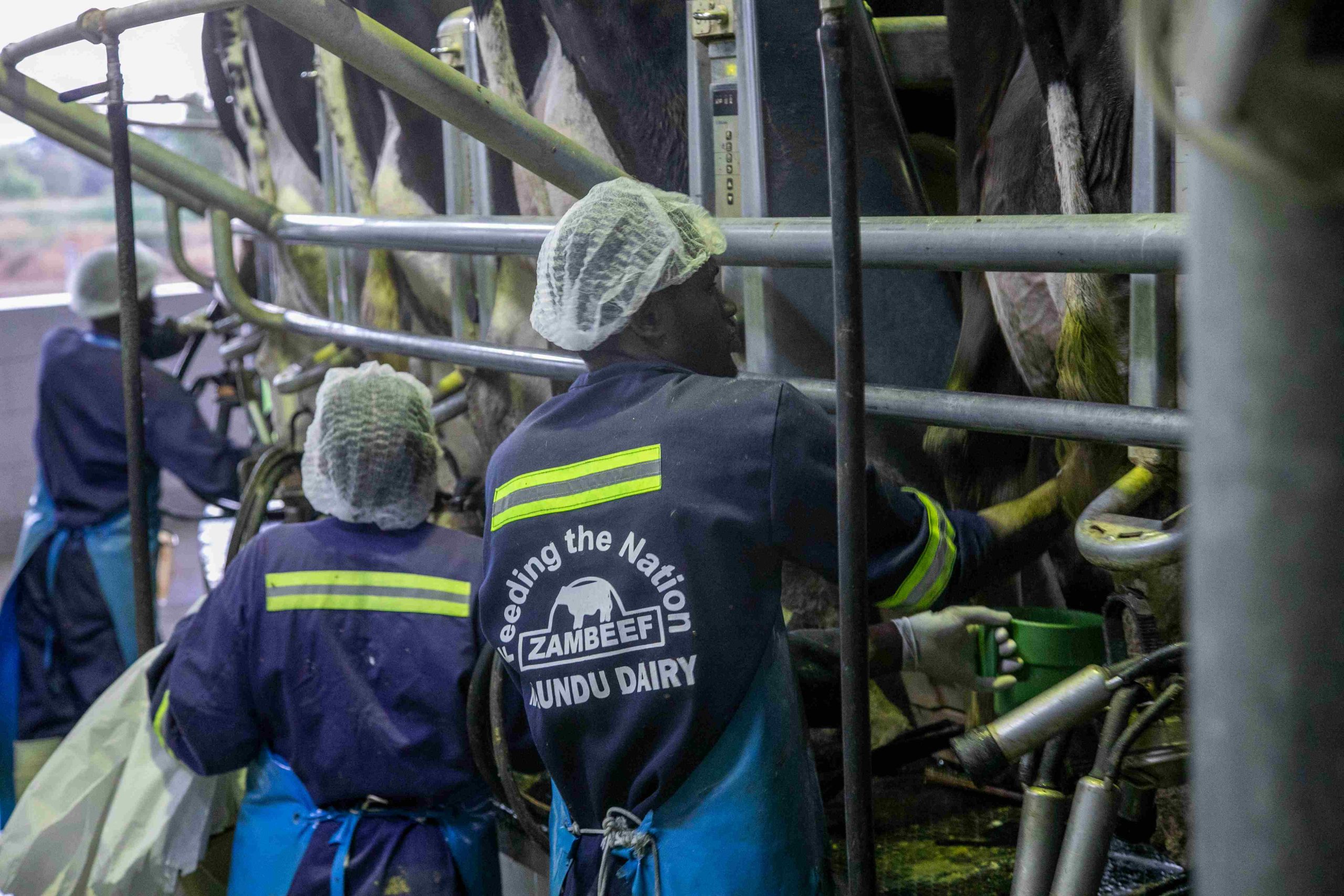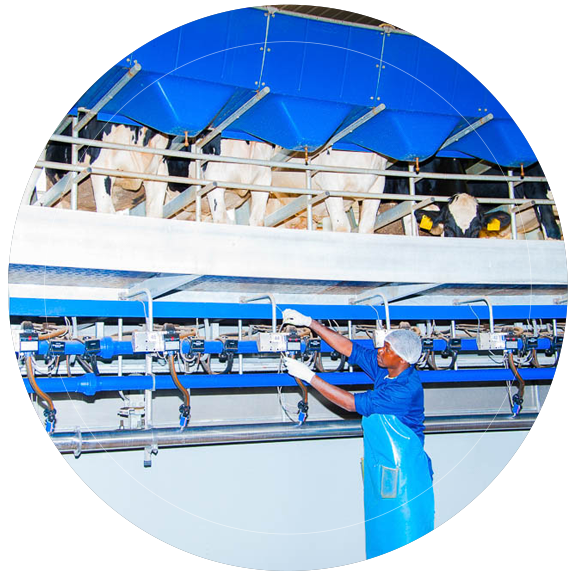

REGISTERED OFFICE
Plot 4970, Manda Road,
Industrial Area,
Lusaka, Zambia
Tel:+260 211 369 000
Fax:+260 211 369 050
Postal Address:
Private Bag 17, Woodlands,
Lusaka, Zambia
We value your feedback and comments and are always eager to hear from you. Whether you have a specific query or simply want to share your thoughts, feel free to reach out. You can contact one of our representatives directly or fill out our thoughts and questions form for a prompt response.
For media inquiries, please contact media@zambeef.co.zm
For investor relations inquiries, please contact ir@zambeef.co.zm
For general inquiries , or if you would like to become a Novatek agent, please fill out our feedback and questions form.
Zambeef Products Plc has zero tolerance towards corruption. We remain committed to being a responsible corporate citizen and are dedicated to maintaining integrity and transparency in our community. To safely and anonymously report any unethical behaviour or misconduct that you have witnessed or experienced, please fill out the feedback and questions form with as much detail as possible. Every report is handled with the utmost seriousness and discretion.
We take a ‘triple bottom line’ approach to sustainability, ensuring a positive impact on society, the environment and the economy. For us, sustainable development is essential for good business. Our environmental and social policy demonstrates our commitment to promoting sustainable practices that benefit everyone. We prioritise creating a safe and healthy workplace, protecting the environment, and supporting the communities where we operate.
Sustainability is part of everything we do. Our farming practices focus on soil health, water security, energy efficiency and the welfare of livestock. In stockfeed production, we follow strict ISO certifications to ensure quality and sustainability standards are met.
We’re also actively working to reduce our environmental impact by implementing smart climate solutions, ensuring our delivery trucks are full to reduce emissions per kilogramme and using approved, environmentally friendly chemicals to cleaning.


Environmental and social policy
Our policy provides the foundation for achieving the following business objectives:

Environmental and social action plan
As part of our commitment to sustainability, we have signed up for an environmental and social action plan (ESAP) linked to some of our term loans and the 2016 CDC Group PLC equity investment. This plan ensures we meet both Zambian and international standards for environmental and social management.
Key deliverables of this plan include:
We report annually on certain qualitative and quantitative project performance data under the following key headings:
As part of the conditions of the CDC Group PLC equity investment, we have established an environmental and social committee, as a sub-committee of the board, to monitor compliance with the ESAP.
We have a dedicated team focused on environmental compliance of and improvements to operations. In addition, we regularly engage other global and international consultants and experts for advice and guidance. Thanks to these efforts, we have not faced any penalties for environmental violations.
With the support of our lenders, who have provided Technical Assistance (TA) funding, we have been able to employ both local and international consultants. These consultants help us effectively deliver on our ESAP commitments. Some of the TA-funded projects include:

Smart agriculture
We are mindful of the impact of climate change and the need for sustainable agricultural practices. The environmental stewardship of our farms is a responsibility we take very seriously. We actively manage the natural environment in which we operate, ensuring that habitat is preserved for wildlife and indigenous trees and plants across our farms.
All our projects go through an impact assessment to identify positive and negative effects and potential mitigation factors in accordance with local and international standards. We maintain some of the highest international biosecurity standards in the country, which are strictly observed on all our farms and across our various operations and processes.
In 2015, we introduced a ‘windrow cropping’ system that allows us to produce organic fertiliser from organic waste on Huntley Farm for use in our cropping operations. The organic fertiliser replaces 50% of the synthetic fertilisers used on the farm, cutting costs while preserving the soil integrity and improving fertility.
In 2013, we introduced treatment ponds at Huntley Farm, which protect the environment by breaking down effluent for at least three months before discharge. The initiative was commended by ZEMA in recognition of the positive improvements towards sound environment management practices at the farm.
Additionally, we maintain an animal migration corridor at Chiawa Farm, providing safe passage for animals. This has resulted in the flourishing of flora and fauna in the corridor and surrounding areas.

Sustainable farming
We are committed to innovation and transitioning towards a net-zero future, prioritising environmental impact reduction. We have and continue to invest into research and measurement tools to monitor emissions, water and energy usage, and the welfare of our animals. We also aim to use less – water, energy, land – to produce more.
We are gradually reducing reliance on charcoal among farmers, favouring alternative energy sources to mitigate environmental impact and CO2 emissions. This approach prioritises both environmental conservation and animal health, which are both crucial for business sustainability.
